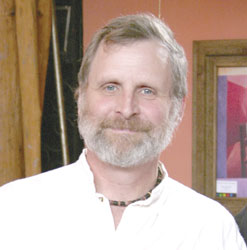Uncommon Common Sense
By Bill Frayer
This email address is being protected from spambots. You need JavaScript enabled to view it.
An Argument for Pluralism
 I have been thinking about the Russian-born British social philosopher Isiah Berlin lately. My friend at Lakeside, Luis Romero, shared one of Berlin’s essays with me a couple of years ago. In it, Berlin discusses the role of pluralism in Western liberal democracies.
I have been thinking about the Russian-born British social philosopher Isiah Berlin lately. My friend at Lakeside, Luis Romero, shared one of Berlin’s essays with me a couple of years ago. In it, Berlin discusses the role of pluralism in Western liberal democracies.
He was a proponent of values pluralism. In his view, a free society should encourage and appreciate differing values and policies, freely debated, so that individuals can make good choices about public policy. In Berlin’s view, it is impossible to predict, with certainty, all the consequences and permutations for any specific proposal. In the long run, he believed, societies are better off to have free and open disagreement. This, he believed, will lead to progress, even though it may be incremental and less dramatic than people may wish for.
Berlin went on to argue that Utopian systems were doomed to fail. Whenever such an idealistic system is proposed, it is, by definition, theoretical. It will surely not work out as conceptualized by its creators. In fact, he argues that whenever a Utopian system is actually implemented, or even attempted, it invariably leads to less freedom, and often violence. This is because implementing an ideal system requires that everyone conform to the ideal model. Think of Lenin, Mao, and Hitler. They were all seeking, in their own mind, some Utopian ideal. All resorted to violence. All failed. Berlin concluded that these strongly idealistic systems were doomed to fail, primarily because they necessarily had to abandon pluralistic values.
I believe Berlin’s ideas about pluralism have relevance today. As we become more polarized, we have less trust in one another, many become more certain that their ideas are “correct,” leading to less productive dialogue and more rigid thinking. The problems we are facing are difficult and complex and do not lend themselves to easy answers. Yet politicians, speaking to often uninformed voters, pander to them by offering oversimplified, unrealistic, ideas which may be emotionally satisfying but are unrealistic.
Politicians on all sides can be guilty of this. Obviously, building a wall on the Mexican border, suspending immigration based on religion, and magically bringing back steel manufacturing and coal mining are good examples. They may appeal to certain voters emotionally, but they cannot be implemented. Other ideas that appeal to a wide swath of voters include free health care, free college tuition, and a guaranteed annual income for everyone. Such goals are desirable, but they would not be easily achieved.
In critical thinking, we often speak of logical fallacies. The relevant fallacy here might be called the perfection fallacy: the perfect is the enemy of the good. In other words, if we can’t provide a perfect solution, it’s not worth providing half a loaf. I would disagree. Incremental changes, over time, are more effective than sweeping changes. And perhaps more importantly, small changes can actually be achieved.
There have been historical moments when great crises created the opportunity for large-scale changes. FDR’s New Deal comes to mind. It completely transformed the role of government in citizens’ lives. Even though portions of it were rolled back, it fundamentally changed our society. But the opportunity for such massive changes come along only rarely. Usually, change is difficult and incremental and is hammered out after lots of debate, give and take and compromise.
Unfortunately, the political environment today is not conducive to such pluraliatic debate. People are looking for simple answers. We will not get them. The sooner we realize this, the better off we’ll be.
{article Bill Frayer}{text}{/article}









